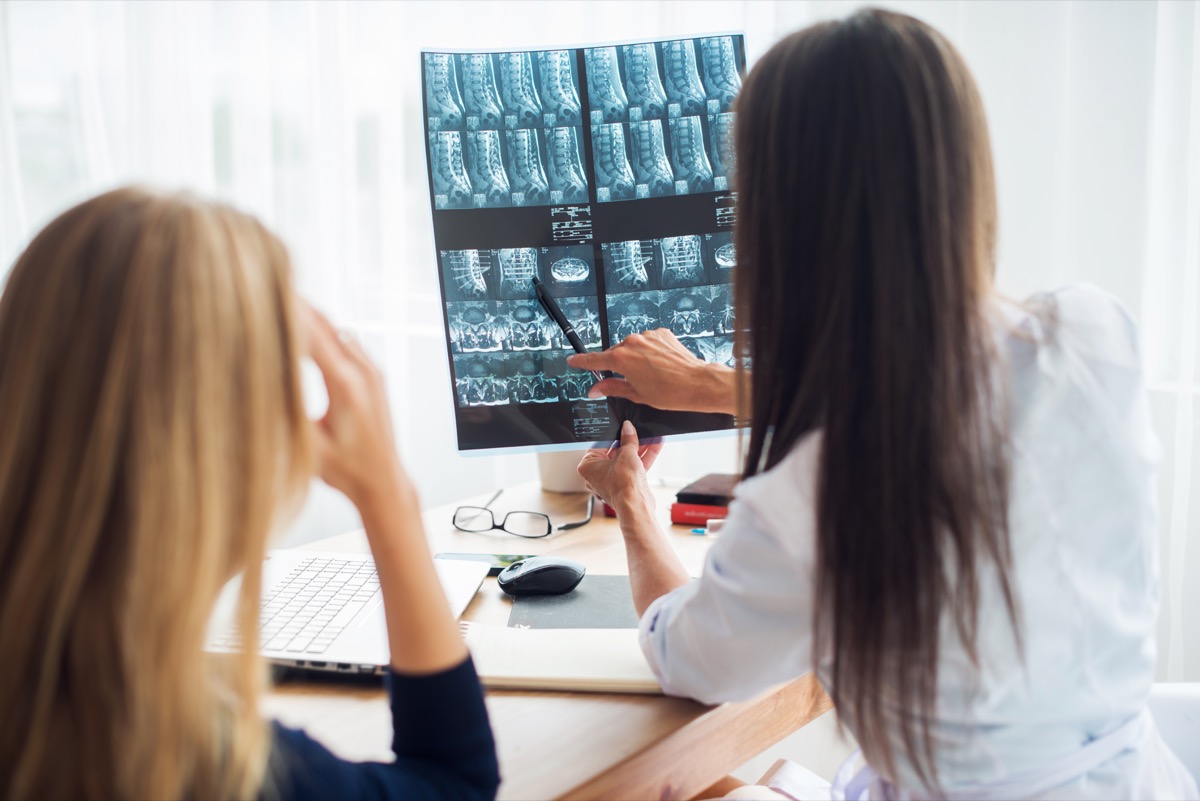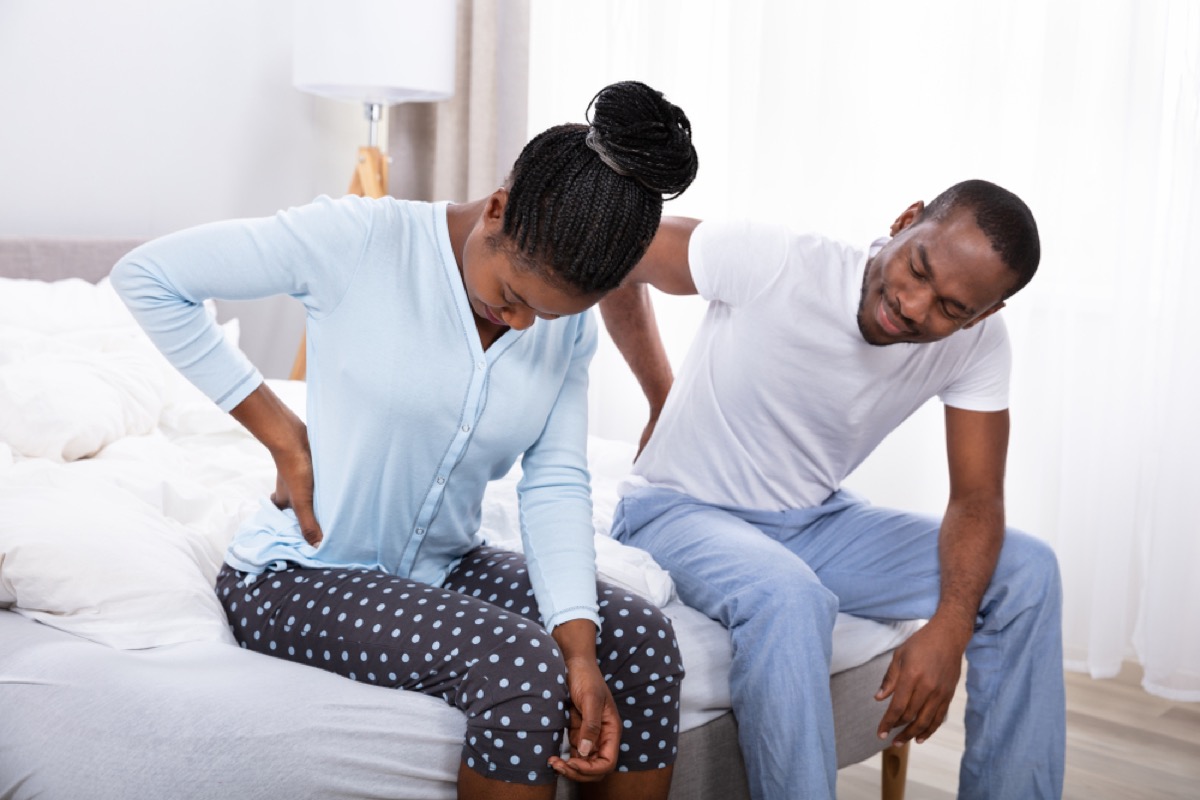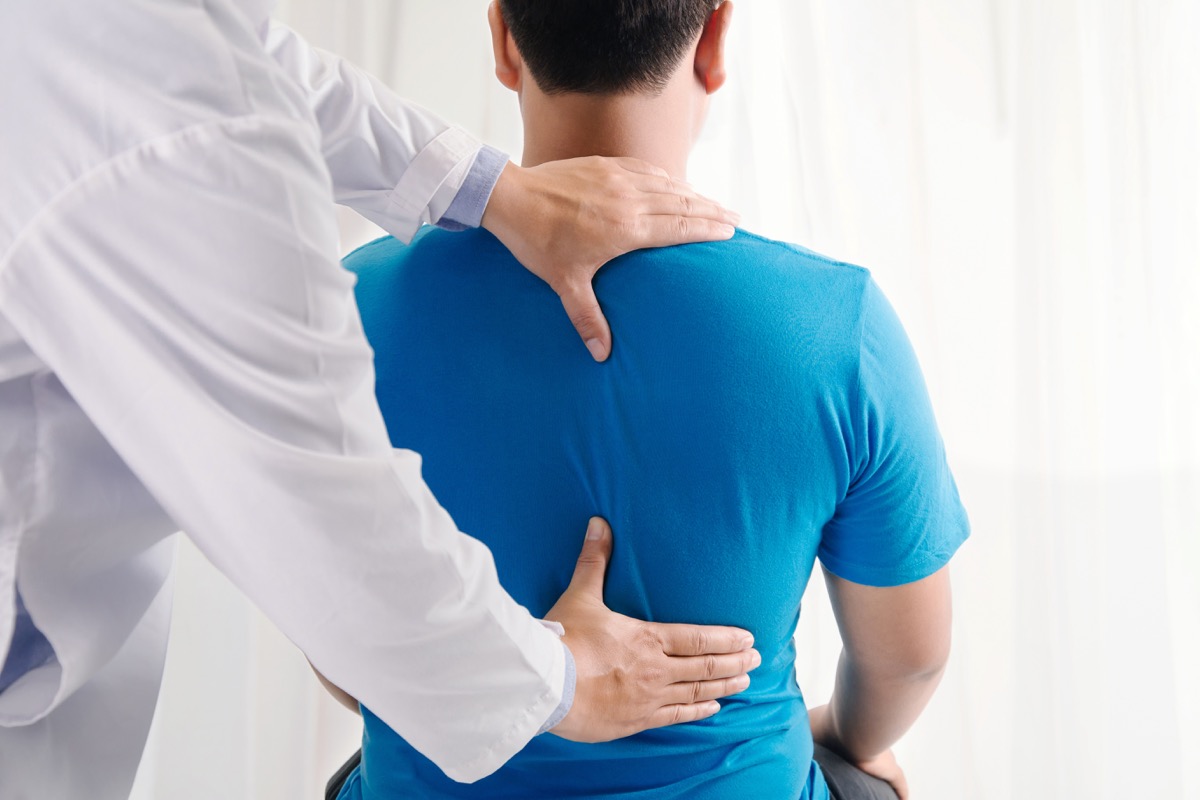New research, published in the Journal of General Internal Medicine on Apr. 19, looked at how back pain correlates with mortality risk. According to the systematic review and meta-analysis of 11 studies, consisting of 81,337 middle-aged and older adults, the findings concluded that back pain was connected with a “modest increase in all-cause mortality among women and those with more severe back pain.” However, mild back pain was not linked to a heightening risk of death and there was no link between back pain and mortality in men.ae0fcc31ae342fd3a1346ebb1f342fcb And if you’ve been taking pain relievers, know that This Popular Medication Won’t Actually Help Your Back Pain, Study Says. The BMC research looked at the relationship between back pain and mortality in women and saw a link in the limited activity that can come with back pain. “Back pain is the leading cause of disability worldwide, and disability and inactivity are generally associated with greater mortality,” according to a press release for the study. Back pain causes “limitations in activities of daily living, and reduced physical activity that may lead to weight gain and the development or worsening of chronic conditions such as cardiovascular disease,” the statement continued. “I hope this study will lead to a better understanding of the long-term impacts of activity-limiting back pain on overall health and research to improve back pain treatment over the course of patients’ lives,” lead author Eric Roseen, DC, director of the Program for Integrative Medicine and Health Disparities at Boston Medical Center, said in a statement. “Proper management of back pain is important.” And for more up-to-date health news you need, sign up for our daily newsletter. After menopause, women are likely to have more back pain incidents than men. Alexis Tingan, MD, a physician at Penn Medicine who was not involved with the new study, said aging is known to cause spinal stenosis, which can increase morbidity. Tingan told Penn Medicine’s website that back pain usually comes up between the ages of 40 and 60, though some can feel changes in their spine as young as 30. Age also appears to play a factor in herniated discs. “As you get older, the discs dry out, and become less spongy and pliable. They become rigid, increasing your risk of having a herniated disc,” Tingan said. Although a herniated disk is not life threatening, it could be very debilitating. Regardless of what’s causing your back pain, Tingan stressed the importance of a healthy weight and diet because “every pound on your body puts pressure on your musculoskeletal system.” And for more on the dangers of certain foods, know that If You Eat a Lot of These 7 Foods, Your Heart Disease Risk May Be High. “If you wait to do something about lower back pain until it’s become debilitating, you’ve waited too long,” Hosun Hwang, MD, a spine specialist at Houston Methodist Willowbrook Hospital, who was not involved in the BMC analysis, said in a statement. He explained that a large number of people’s back discomfort goes away within two weeks, but if yours lasts longer, something may be amiss. “If your pain is long-term or chronic, it’s time to see a spine specialist,” Hwang added. You can treat consistent back pain with medications, injections, physical therapy, and surgery, which is required in some cases. “We always start by using the least invasive, most effective treatment first,” Hwang said. He suggests anyone with severe, persistent, or traveling back pain see a spine specialist sooner than later. Additionally, it would be a smart move to see a doctor if the pain makes you weak and unable to do your daily activities—or if you notice a fever, unexplained weight loss, or urinary problems, Hwang explained. And for more pains to pay attention to, check out If This Body Part Hurts You at Night, See Your Doctor.



